Customer engagement goes beyond mere transactions; it encompasses the personalized connection between a brand and its customers.
The Twilio report states that 66% of consumers will quit a brand if their experience isn't personalized.
In the search for boosting customer engagement, Software as a Service (SaaS) chatbots emerged as a game-changer. According to Chatbots Magazine, SaaS chatbots can increase customer satisfaction by up to 20%.
SaaS chatbots are cloud-based software applications that leverage AI and NLP technologies to simulate human-like conversations. As per Gartner, SaaS chatbots effectively improve customer satisfaction, increase conversion rates, and reduce costs.
These intelligent virtual assistants can offer a dynamic, personalized experience that fosters stronger customer relationships. They are deployed on websites, mobile apps, messaging platforms, and other digital channels.
The power of SaaS chatbots is vital for building brand loyalty, driving revenue growth, and ensuring long-term sustainability.
Continue reading this article on SaaS chatbots, and we will delve into their role in boosting customer engagement and more.
What are SaaS Chatbots?
SaaS chatbots are not your average bots. They're intelligent, versatile, and ready to take customer engagement to the next level. So let's learn more about them.
SaaS chatbots, also known as Software-as-a-Service chatbots, are AI-powered virtual assistants that conversationally interact with customers.
They use NLP and ML algorithms to understand and respond to customer queries. It also provides instant support and personalized recommendations.
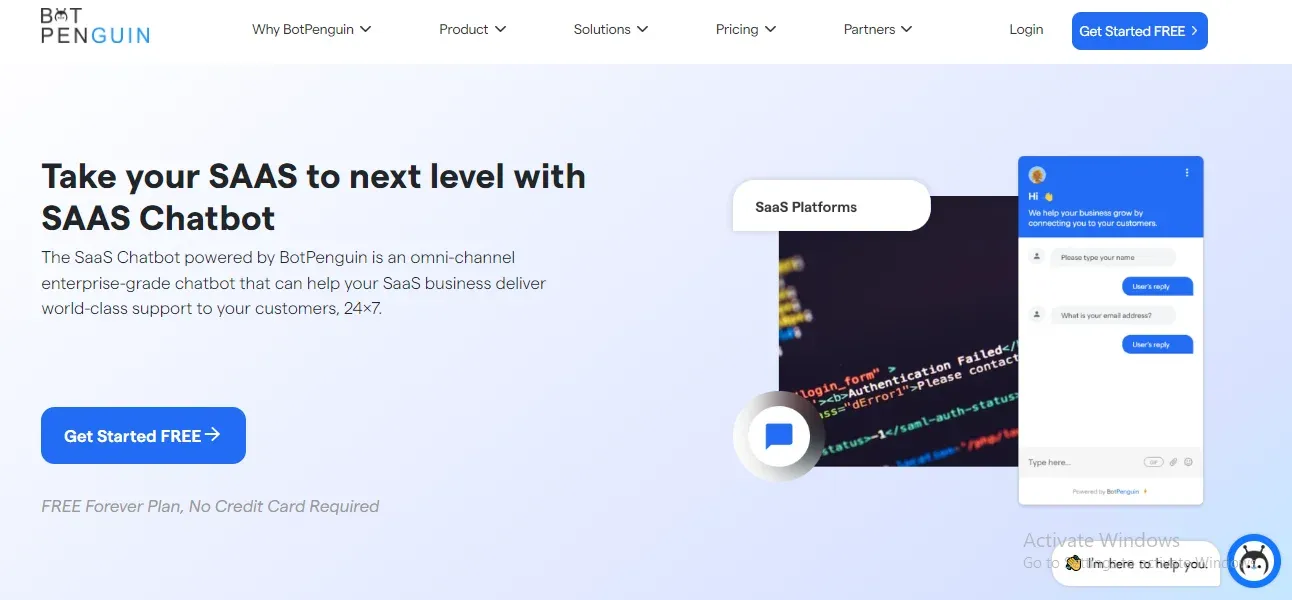
How SaaS Chatbots Work
Behind the scenes, SaaS chatbots are powered by complex algorithms and machine learning models. They analyze customer inputs, understand the context, and generate appropriate responses.
SaaS chatbots can be integrated into various platforms, like websites, messaging apps, and social media platforms. Doing this will make them easily accessible to customers.
Benefits of Using SaaS Chatbots
Now, let's see the benefits of using Saas chatbots:
Enhancing Customer Experience
SaaS chatbots provide customers with a seamless and personalized experience, making them feel valued and heard. They can offer tailored recommendations, answer FAQs, and even assist with complex issues.
Improving Response Time
No more waiting in long queues for customer support. SaaS chatbots offer instant responses, ensuring customers get the help they need without delays. Get your own SaaS Chatbot Today! Try BotPenguin
Personalization and Customization
These chatbots can gather customer data and preferences. SaaS chatbots allow businesses to offer personalized recommendations and targeted marketing campaigns.
24/7 Availability
SaaS chatbots are always on duty, ready to assist customers at any time of the day or night. No more limited business hours or missed opportunities!
Cost-Effectiveness
Hiring and training a customer support team can be expensive. SaaS chatbots provide a cost-effective solution. It reduces the need for extensive human resources while still delivering exceptional service.
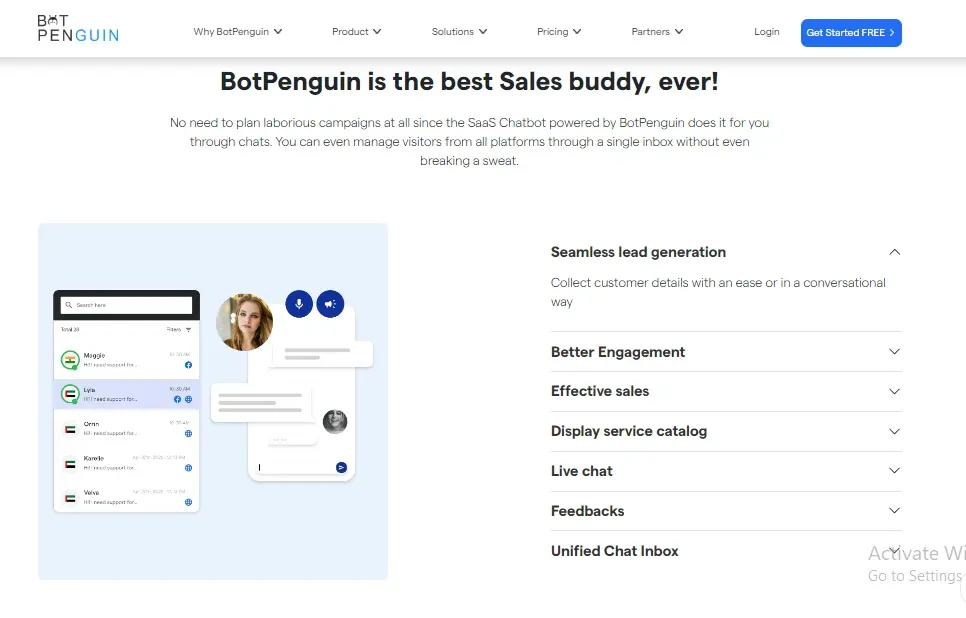
Why Use SaaS Chatbots for Boosting Customer Engagement?
In this section, we'll see the uses of SaaS chatbots for boosting customer engagement.
Enhancing Customer Experience
Customer experience is the core pillar of any successful business. SaaS chatbots excel in creating memorable experiences by offering personalized interactions. It understands customer preferences and provides relevant recommendations.
They can simulate human-like conversations. Doing this makes customers feel like they're talking to a real person rather than a machine.
Improving Response Time
Customers expect quick and efficient support instantly. SaaS chatbots deliver just that.
With their lightning-fast response times, they can simultaneously handle multiple customer queries, ensuring no one is left waiting.
BotPenguin chatbot's response time is only 2 seconds. It not only saves time for customers but also increases their satisfaction and loyalty.
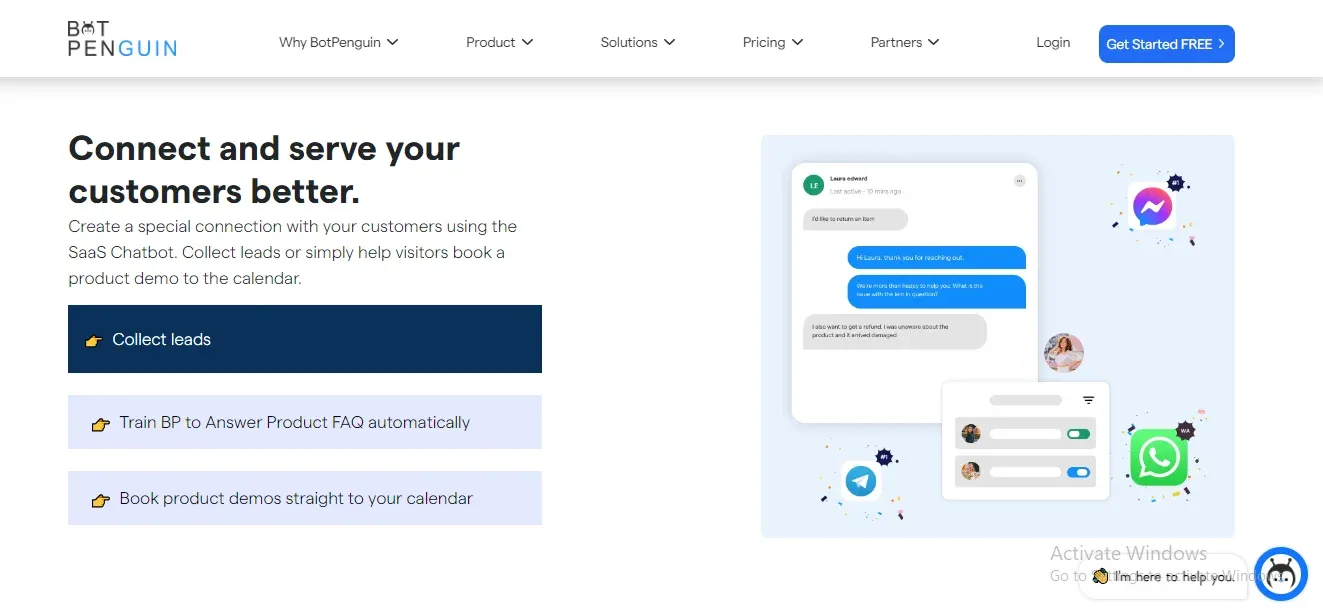
Personalization and Customization
One size does not fit all when it comes to customer engagement. SaaS chatbots can gather and analyze customer data. It allows companies to offer personalized recommendations and tailored solutions.
Chatbots can create a more targeted and relevant experience by understanding customer preferences and behaviors. Doing this leads to higher engagement and conversion rates.
24/7 Availability
Customers don't adhere to traditional business hours, and neither should your customer support. SaaS chatbots are available round the clock. It provides assistance and support whenever customers need it.
Chatbots ensure that customers are always safe, whether in the middle of the night or during a busy holiday season.
Cost-Effectiveness
Running a business is all about finding the right balance between quality and cost. SaaS chatbots offer a cost-effective solution for customer engagement.
Chatbots reduce the need for extensive human resources by automating repetitive tasks and inquiries. It translates into significant cost savings for businesses without compromising on the quality of customer support.
Accessibility and Scalability
SaaS chatbots are hosted in the cloud. Doing this makes them easily accessible from anywhere with an internet connection. It means customers can engage with your chatbot on various devices and platforms.
SaaS chatbots can scale up or down according to your needs. It accommodates changes in customer traffic and interaction volume.
Rapid Deployment
Implementing a SaaS chatbot is faster than building one from the ground up. Most SaaS chatbot platforms offer pre-built templates and tools for easy configuration.
You can have a chatbot up and running quickly, which is crucial in responding to changing customer needs and market trends.
Continuous Updates and Maintenance
SaaS chatbot providers take responsibility for maintaining and updating the software. It ensures your chatbot remains up-to-date with the latest features, security patches, and improvements.
You don't have to worry about allocating resources for ongoing maintenance and can focus on other strategic aspects of your business.
Integration Capabilities
SaaS chatbot solutions frequently interface with well-known CRM systems and e-commerce platforms. It allows for a seamless data flow between your chatbot and existing systems.
BotPenguin chatbots provide for over 60+ integrations. Integration with BotPenguin helps in personalizing customer interactions and offering tailored recommendations. It is also easy to access customer information for more context-aware conversations.
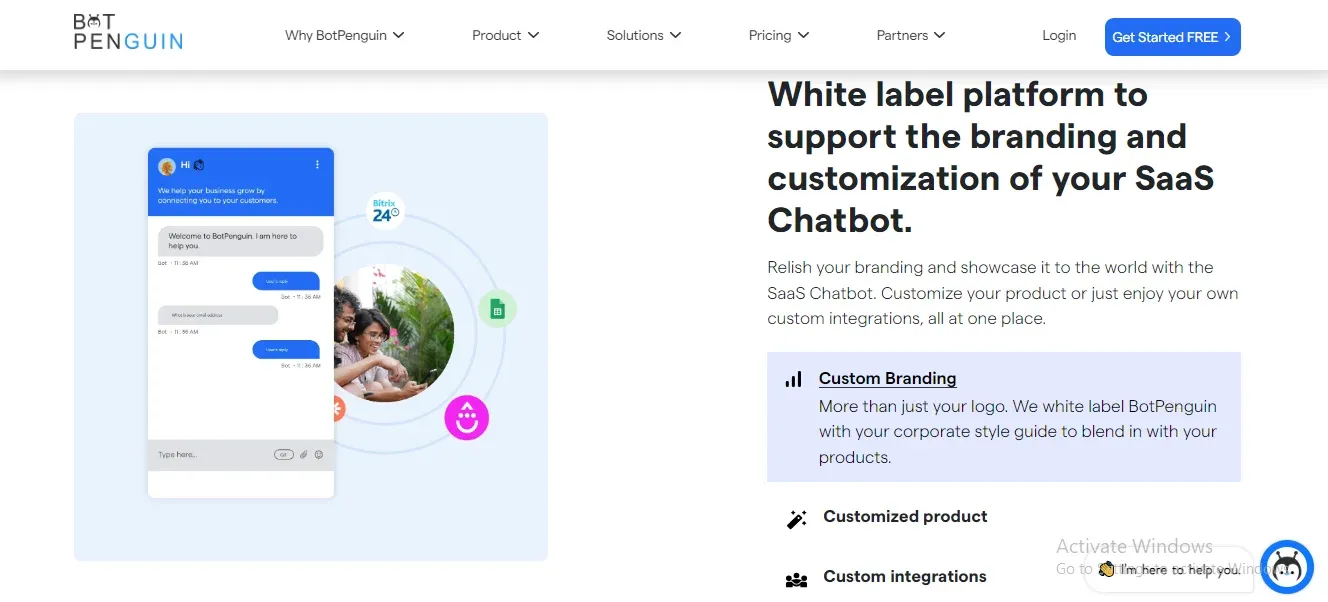
Analytics and Insights
SaaS chatbots come with built-in analytics and reporting tools. These tools can provide helpful information on client behavior, preferences, and frequently asked questions.
By analyzing these data, you can continuously improve your chatbot's performance and identify areas for enhancement. You can also make data-driven decisions to enhance customer engagement.
Multilingual and Multichannel Support
Many SaaS chatbots support multiple languages and can be deployed across various communication channels. It includes websites, social media, messaging apps, and more. Doing this widens your reach and engages a diverse customer base.
Suggested Reading:
Chatbots for SaaS: Pros, Cons, and Use Cases
Who Can Benefit from SaaS Chatbots?
SaaS chatbots are not limited to a specific industry or business size. Let's explore who can harness the power of SaaS chatbots and revolutionize their customer engagement.
E-commerce Businesses
Online retailers can significantly benefit from SaaS chatbots. Customers can use these chatbots to help them identify products and receive customized suggestions based on their preferences. It can even help with the checkout process.
Chatbots can increase customer satisfaction and drive sales by offering a seamless and interactive shopping experience.
Customer Support and Service Providers
Customer support teams are often overwhelmed with a high volume of inquiries. SaaS chatbots can alleviate this burden by handling routine queries and providing instant responses. It can also escalate complex issues to human agents when necessary.
Doing this improves response times and allows customer support teams to focus on more critical and specialized tasks.
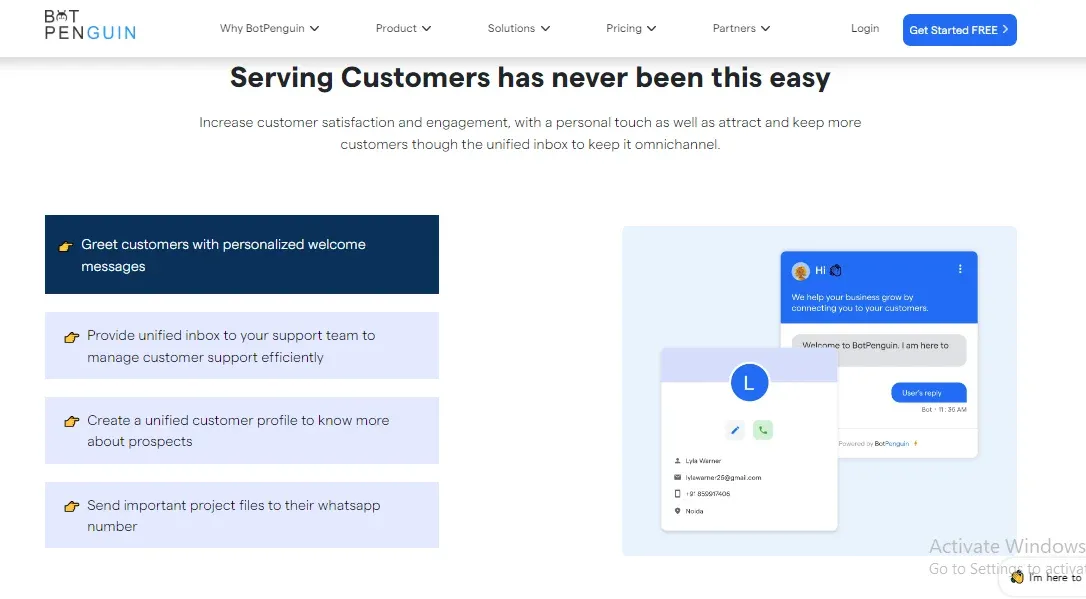
Marketing and Sales Teams
SaaS chatbots can be a game-changer for marketing and sales professionals. Businesses can engage with potential customers by integrating chatbots into websites or social media platforms. They can also answer their questions and guide them through the sales funnel.
Chatbots can also collect valuable customer data, enabling marketers to create targeted campaigns and drive conversions.
Small and Medium-sized Enterprises (SMEs)
SMEs often need help with resource constraints, making it challenging to provide round-the-clock customer support. SaaS chatbots offer a cost-effective solution by providing 24/7 availability and handling customer inquiries anytime.
It allows SMEs to deliver exceptional customer service without needing a large support team.
Industries with High Customer Interaction
Industries such as hospitality, travel, and healthcare heavily rely on customer interaction. SaaS chatbots can streamline processes, such as booking reservations, providing medical advice, or offering travel recommendations.
Businesses in these industries can enhance customer engagement, improve efficiency, and deliver a personalized experience by automating these tasks.
How SaaS Chatbots Boost Customer Engagement?
Now that we know who can benefit from SaaS chatbots, let's dive into how these virtual assistants boost customer engagement.
Proactive Customer Interaction
SaaS chatbots can initiate customer conversations, proactively offering assistance or recommendations based on their browsing behavior or previous interactions.
By reaching out to customers, chatbots create a sense of personalized attention, making customers feel valued and engaged.
Instant Responses and Support
One of the key advantages of SaaS chatbots is their ability to provide instant responses. Chatbots can quickly address customer queries, provide relevant information, and troubleshoot common issues. This instant support leads to higher customer satisfaction and engagement.
Seamless Integration with Existing Systems
SaaS chatbots can seamlessly integrate with existing systems, like customer relationship management (CRM) software or knowledge bases. This integration allows chatbots to access relevant customer data and provide accurate and personalized responses.
Chatbots leverage existing resources to enhance the customer experience and foster deeper engagement.
Data Collection and Analysis
SaaS chatbots are not just conversation starters; they are also data collectors. These chatbots can gather valuable customer insights, such as preferences, purchase history, and feedback.
Use this data to identify trends, improve products or services, and create targeted marketing campaigns. By leveraging customer data, businesses can deliver more personalized and engaging experiences.
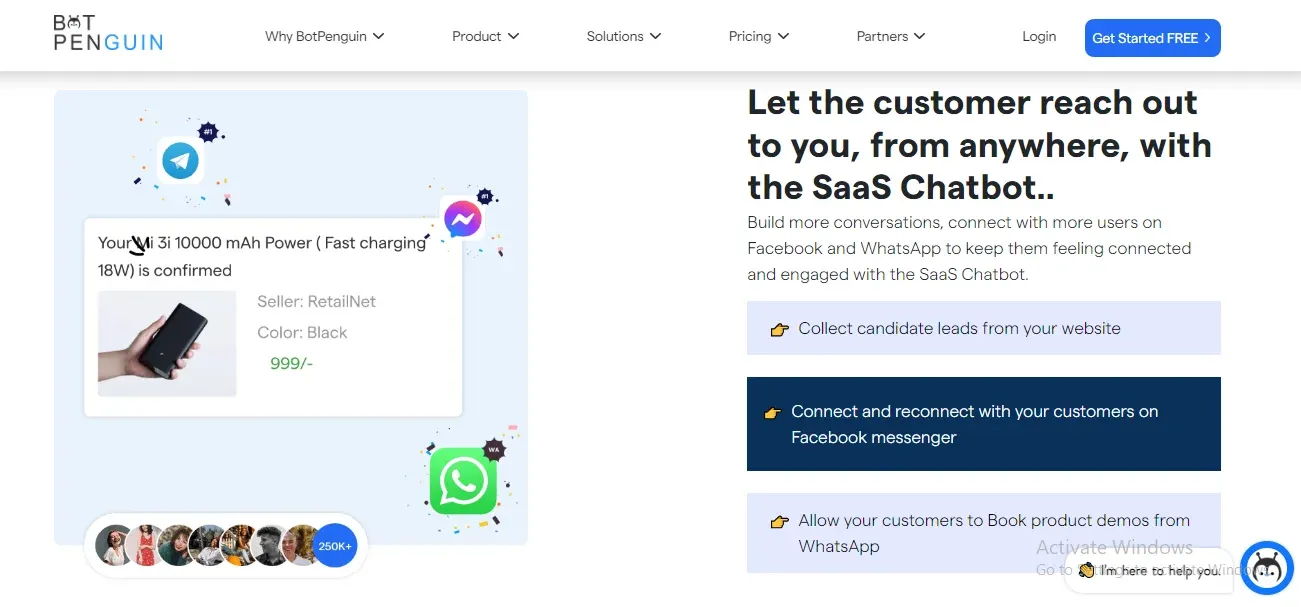
Multilingual Support
In today's globalized world, businesses often interact with customers from diverse linguistic backgrounds. SaaS chatbots can bridge the language barrier by offering multilingual support.
Customers can communicate with chatbots in any preferred language. It leads to better understanding, improved engagement, and a broader customer base.
Best Practices for Implementing SaaS Chatbots
Implementing SaaS chatbots requires careful planning and execution to ensure optimal results. Let's explore some best practices that can help you successfully integrate chatbots into your customer engagement strategy.
Setting Clear Goals and Objectives
Before diving into chatbot implementation, defining your goals and objectives is crucial. What do you want to achieve with your chatbot? Is it to improve response times, increase customer satisfaction, or drive sales?
By setting clear goals, you can align your chatbot strategy with your overall business objectives and measure its success effectively.
Designing Conversational Flows
The key to a successful chatbot lies in its conversational flow. Designing a natural and intuitive conversation is essential to engage customers effectively.
Map out different user journeys and anticipate potential questions or scenarios. Use open-ended and closed-ended questions to guide the conversation and provide relevant responses.
Iteratively test and refine the conversational flow to ensure a seamless user experience.
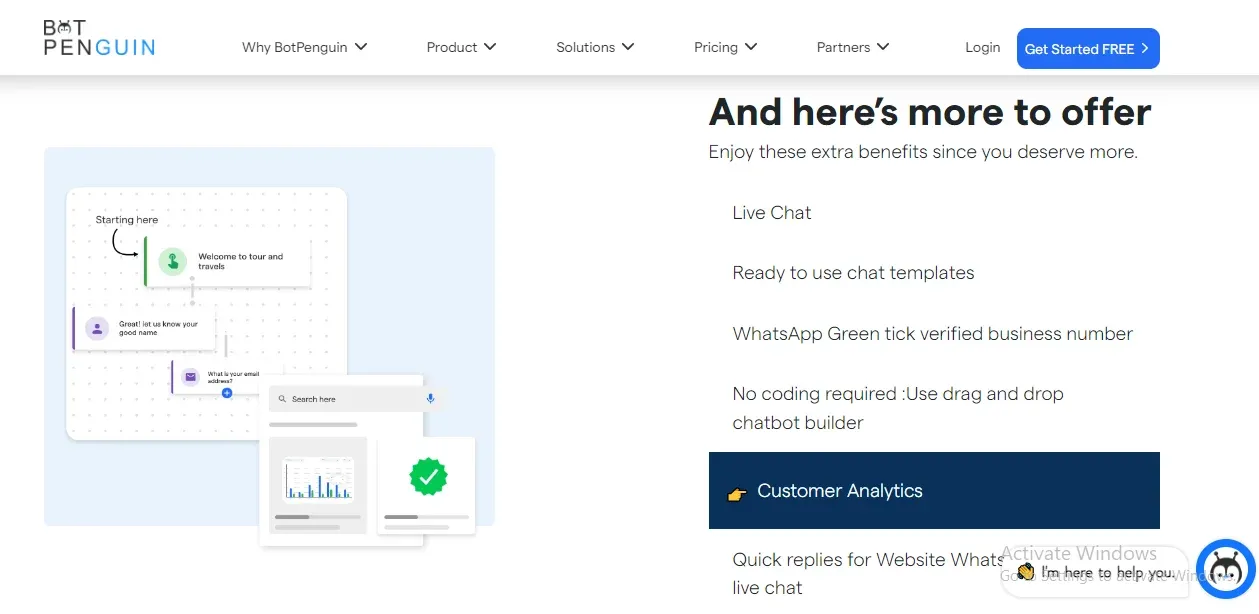
Training and Testing the Chatbot
Training your chatbot is crucial to ensure accurate and relevant responses. Use machine learning techniques to train the chatbot on historical customer interactions and continuously update its knowledge base.
Regularly test the chatbot with different scenarios and user inputs to identify any gaps or areas for improvement. Solicit user feedback and incorporate their suggestions to enhance the chatbot's performance.
Monitoring and Continuous Improvement
Implementing a chatbot is not a one-time task; it requires ongoing monitoring and continuous improvement. Regularly analyze chatbot performance metrics, such as response time, customer satisfaction ratings, and conversion rates.
Identify patterns or issues that need attention and make necessary adjustments. Stay updated with customer feedback and adapt the chatbot's responses to address evolving customer needs.
Ensuring Data Privacy and Security
Customer data privacy and security is a top priority when implementing chatbots. Ensure your chatbot complies with relevant data protection regulations and follows the best data encryption and storage practices.
Communicate your data privacy policies to customers. Also, obtain their consent for data collection and usage. Regularly audit and review your chatbot's security measures to maintain customer trust.
Challenges and Limitations of SaaS Chatbots
While SaaS chatbots offer numerous benefits, it's essential to be aware of their challenges and limitations. Let's explore some common challenges and how to overcome them.
Language and Context Understanding
Chatbots may struggle with understanding complex or ambiguous language and context. They rely on predefined conversational flows and may not grasp the nuances of human communication.
Invest in natural language processing (NLP) capabilities to overcome this challenge and continually train your chatbot to improve its language understanding. Provide clear instructions to users and offer fallback options when the chatbot cannot comprehend a query.
Handling Complex Queries
While chatbots excel at handling routine queries, they may struggle with complex or unique situations. Having a seamless handoff to human agents is crucial when faced with such queries.
Implement a smooth escalation process where the chatbot transfers the conversation to a human agent who can provide specialized assistance. It ensures customers receive the support they need, even in complex scenarios.
Maintaining Human-like Conversations
Creating a chatbot that mimics human conversation is a challenge. Chatbots may sometimes sound robotic or fail to understand the emotional context of a conversation.
To overcome this limitation, design conversational flows that feel natural and engaging.
Incorporate empathy and personality into the chatbot's responses to create a more human-like experience. Review and refine the chatbot's language and tone to align with your brand voice.
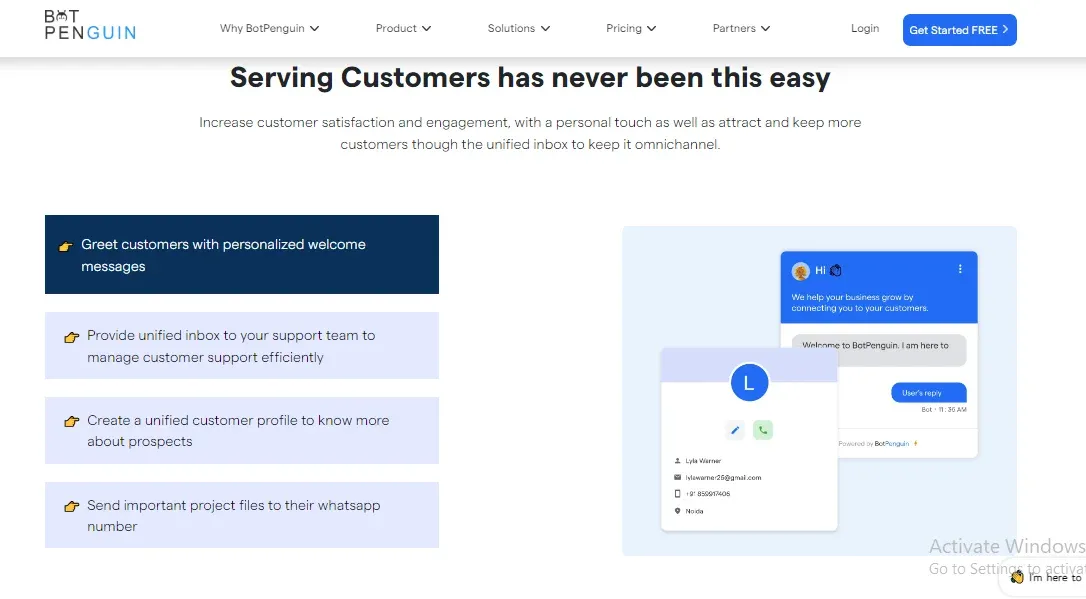
Balancing Automation and Human Intervention
Finding the right balance between machine automation and human intervention is crucial. While chatbots can handle routine queries, there are situations where human touch is necessary.
Implement a seamless handoff process where the chatbot transfers the conversation to a human agent when needed. It ensures that customers receive personalized assistance while still benefiting from the efficiency of chatbot automation.
Dealing with Technical Issues
Like any technology, chatbots may encounter technical issues or downtime. It's essential to have a robust technical infrastructure in place to minimize disruptions.
Regularly monitor the chatbot's performance, identify and resolve technical issues promptly. Provide clear communication to customers during downtime or system maintenance, ensuring transparency and managing customer expectations.
Future Trends and Innovations in SaaS Chatbots
Let's explore some future developments of SaaS chatbots that will further enhance customer engagement.
AI Advancements and Natural Language Processing
Advancements in artificial intelligence (AI) and natural language processing (NLP) will enable chatbots to understand better and respond to human language.
AI algorithms will become more sophisticated. It will allow chatbots to handle complex queries, understand context, and engage in more natural and human-like conversations. It will increase consumer engagement and satisfaction even further.
Voice-Enabled Chatbots
With the increased use of voice assistants like Siri and Alexa, voice-enabled chatbots will become more prevalent. Customers can interact with chatbots using voice commands, making the experience more intuitive and convenient.
Voice-enabled chatbots will provide a hands-free and personalized engagement, further enhancing the customer experience.
Integration with Voice Assistants and Smart Devices
SaaS chatbots will integrate seamlessly with popular voice assistants and smart devices. Customers can access chatbot services through smart speakers, smart TVs, and even their cars.
This integration will provide a consistent and personalized experience across multiple platforms. It will increase customer engagement and accessibility.
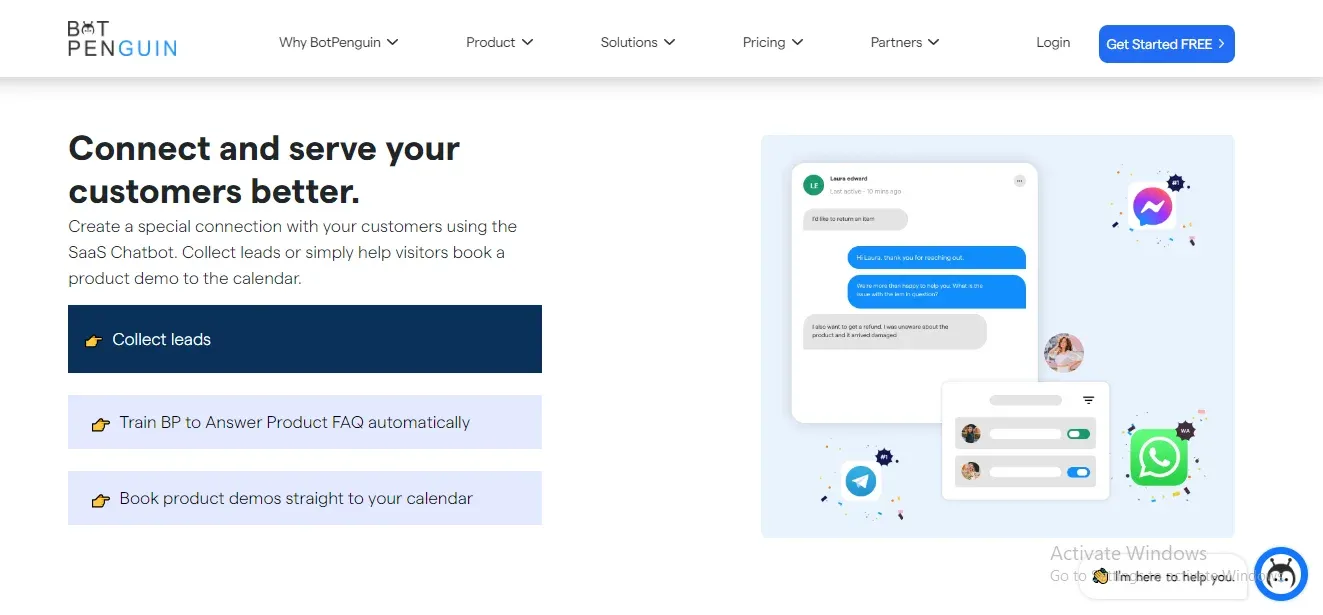
Emotional Intelligence in Chatbots
Future chatbots will have emotional intelligence to understand and respond to customer emotions. They can detect frustration, empathy, and humor, adapting their responses accordingly.
This emotional connection will create a deeper level of engagement and build stronger relationships between customers and businesses.
Augmented Reality (AR) and Virtual Reality (VR) Integration
As AR and VR technologies advance, chatbots will leverage these immersive experiences to engage customers in new and exciting ways.
Chatbots can provide virtual product demonstrations, offer interactive tutorials, and even assist with virtual shopping experiences. This integration of AR and VR will revolutionize customer engagement, making it more interactive, immersive, and memorable.
Conclusion
SaaS chatbots have emerged as a powerful tool for boosting customer engagement.
SaaS chatbots have revolutionized how businesses interact with customers. It also provides instant support, personalized recommendations, and 24/7 availability.
Businesses can enhance customer experience, improve response times, and drive sales conversions by implementing SaaS chatbots.
SaaS chatbots can transform customer engagement across industries and business sizes. Whether you're an e-commerce business looking to provide seamless support or a marketing team aiming to drive conversions, chatbots can be crucial in achieving your goals.
AI advancements, voice-enabled chatbots, emotional intelligence, and AR/VR integration are just a few trends that will further enhance customer engagement.
BotPenguin is a SaaS chatbot platform that helps businesses build and deploy chatbots to boost customer engagement. BotPenguin chatbots are powered by advanced AI and NLP capabilities. It enables them to understand and respond to customer queries in a human-like manner.
BotPenguin chatbots can provide 24/7 support, automate tasks, and personalize the customer experience. BotPenguin chatbots can help businesses improve and build stronger customer relationships by providing these features.
So, take advantage of the opportunity to leverage the power of SaaS chatbots. Remember, the future of customer engagement lies in the hands of SaaS chatbots. Get your own SaaS Chatbot Today!
Frequently Asked Questions (FAQs)
How can SaaS chatbots enhance customer engagement?
SaaS chatbots enhance customer engagement by providing instant support, personalized recommendations, and 24/7 availability.
Can SaaS chatbots be integrated into existing systems?
Yes, SaaS chatbots can seamlessly integrate into existing systems such as websites, messaging apps, and social media platforms.
Do SaaS chatbots understand different languages?
Yes, SaaS chatbots can be programmed to understand and respond in multiple languages.
How do SaaS chatbots handle complex queries?
SaaS chatbots may seamlessly hand off complex queries to human agents for resolution.
Are SaaS chatbots cost-effective for small businesses?
Yes, SaaS chatbots offer a cost-effective solution for small businesses by reducing the need for extensive human resources.
Can SaaS chatbots collect customer data?
Yes, SaaS chatbots can collect valuable customer data to improve engagement strategies and provide a personalized experience.


